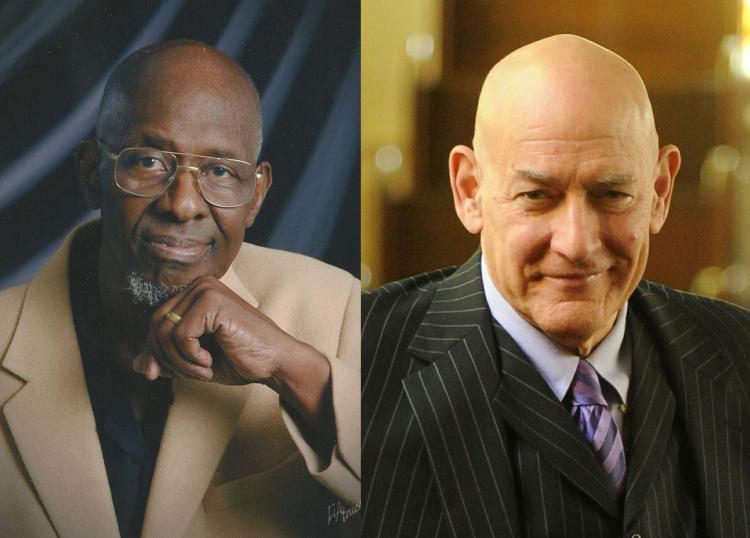CU Boulder appoints W.B. Allen, Stephen B. Presser visiting scholars in conservative thought, policy
W.B. Allen and Stephen B. Presser have been named as the 2018-19 Visiting Scholars in Conservative Thought and Policy at the University of Colorado Boulder.
Allen and Presser are scheduled to teach two courses per semester in fall 2018 and spring 2019. They will also be encouraged to foster discussion by hosting public events in the campus community and around the state.

W.B. Allen, left, and Stephen B. Presser.
Allen is emeritus professor of political philosophy at Michigan State University and emeritus dean at MSU’s James Madison College. Presser is the Raoul Berger Professor of Legal History, emeritus, at the Northwestern University School of Law, professor of strategy at the Kellogg School of Management, and member of the history faculty at Northwestern.
Allen, who has been observing the CU Boulder Conservative Thought and Policy Program since its inception in 2013, said he is eager to get started. “I anticipate happily entering a community of scholars—students and faculty—who believe that liberal education offers and expects from their labors increased understanding,” he said.
Allen added that CU Boulder “exemplifies faith in a future for higher education that delivers critical insight into the grounds of citizenship and prepares generations committed to human flourishing in an atmosphere of liberty.”
Allen, a Fulbright senior fellow, has served in many capacities, including director of the State Council of Higher Education for Virginia; professor of government at Harvey Mudd College, chairman of the U.S. Commission on Civil Rights, and member of the National Council on the Humanities.
Allen’s research interests include the “national character,” an idea propounded by George Washington. Such scholarly inquiry, which Allen hopes to continue while at CU Boulder, probes the sources of “fragmentation” among American citizens and strives to “articulate the practices and principles that can reunite them as one people,” he stated.
Presser also praised Conservative Thought and Policy Program, which he termed “unique and offered in a uniquely well-run university.” After four decades in the academy, he concludes that “real diversity of opinion is increasingly rare in higher education,” he said.
“Those in charge in Boulder, whom I met when I interviewed for this position, have understood that bringing through a series of scholars committed to the search for timeless truths, and a deeper understanding of human nature, is a partial antidote to some of the difficulties now confronting our divided society,” Presser said, concluding:
“It is a an honor to follow those distinguished teachers who have held this position in the past, a privilege to be asked to participate in encouraging the conservation of what is best in our culture, and a joy to be invited to spend a year in a wonderful setting implementing Socrates’s adage that the unexamined life is not worth living.”
Presser is a recognized expert in the history of the law and the U.S. Constitution in the 18th century, when the “founding principles of the United States took shape.” His published works emphasize the grounding of the Constitution and the American legal system in “the timeless principles of justice, philosophy and law, which made up what the authors of the Federalist described as the emerging ‘science of politics,’” Presser stated.
Robert Pasnau, professor of philosophy and director of the Center for Western Civilization, Thought and Policy, which houses the Conservative Thought and Policy Program, praised Presser and Allen as “distinguished teachers and scholars who will make a profound impact on the campus and community over the year ahead.”
Pasnau added: “Thanks to support from many quarters, the center has grown dramatically over the last several years, becoming a vibrant community of scholars representing a wide range of disciplines and perspectives. Next year’s group of fellows promises to be the best ever.”
The visiting scholars were selected with input from an advisory panel that includes members of the faculty and community and is chaired by Pasnau. The committee has sought a “highly visible” scholar who is “deeply engaged in either the analytical scholarship or practice of conservative thinking and policymaking or both.”
The Conservative Thought and Policy Program is supported by private funds.

